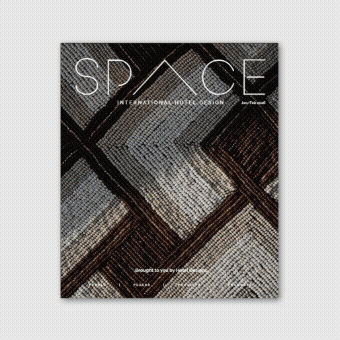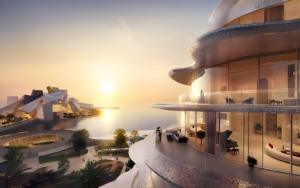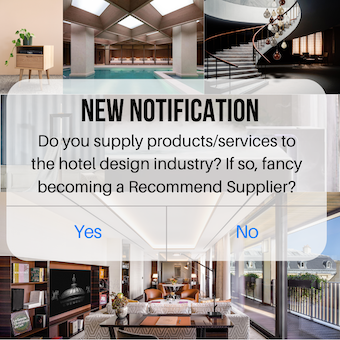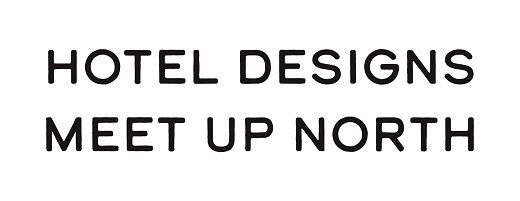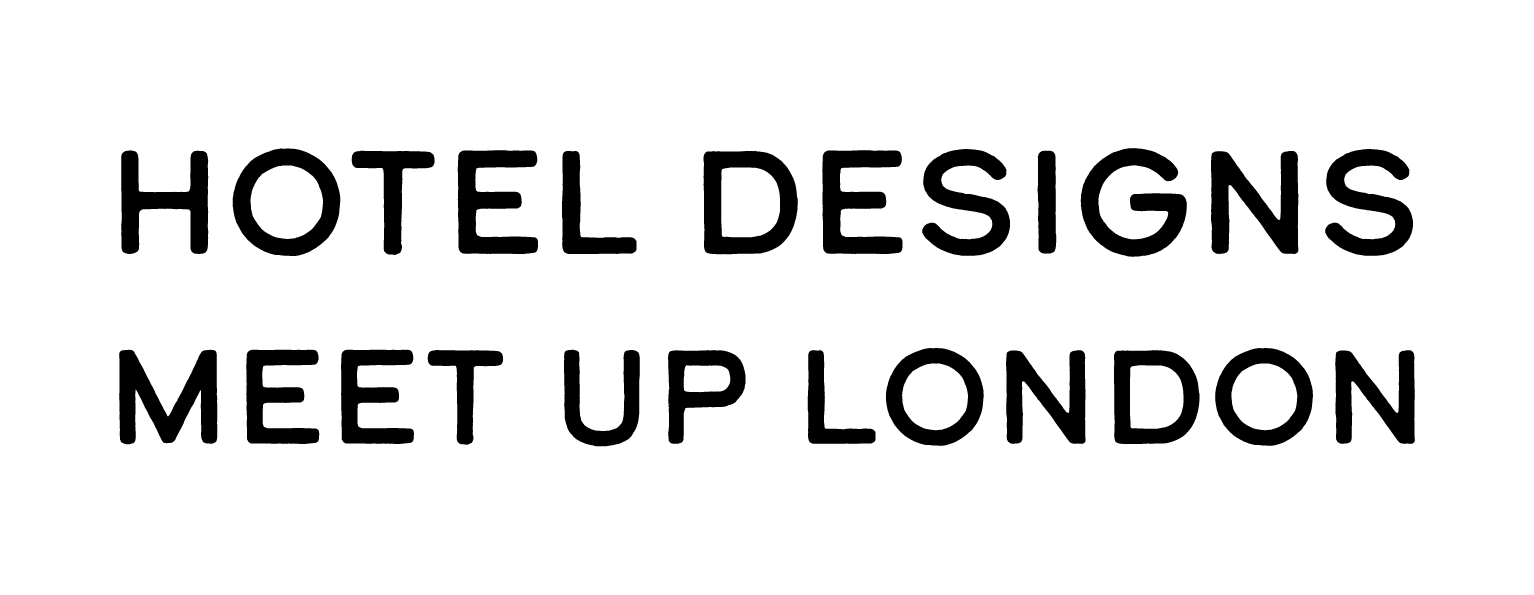William Graham-Park, Hospitality Lead at ALE, and Hamish Kilburn, Editor of Hotel Designs, recently sat down to explore how technology trends are shaping the hotel and hospitality industries…
Technology trends have gone a bit Black Mirror in recent, with AI and the Metaverse emerging as both disruptors and opportunities for brands operating in the hotel design and hospitality arenas.
Driving these innovations and drastic tech-forward transformations is an increasingly impatient on-demand society that expects simple interfaces to react at lightning speed. Cue the arrival of Alcatel Lucent Enterprise (ALE), which will attend Tech in Hospitality Summit on September 18 – 19 in London. ALE claims that it is ‘reinventing’ how hospitality guests and staff communicate in safe and meaningful ways. This is done, simply, through the launch of efficient communication solutions.

Image credit: ALE
Driving the technology that ALE has launched is extensive research into consumer behaviour. To understand more about the emerging tech trends that are evolving the digital age in hospitality, we caught up with William Graham-Park, Hospitality Lead at ALE.
Hamish Kilburn: So, William, what trends are you currently seeing in the hospitality sector?
William Graham-Park: Well, there’s a lot going on, so for ease and clarity, let me distinguish between general trends we’re seeing, versus disruptive technology trends that are affecting the industry.
In terms of the general trends in the hospitality industry currently: Environmental, Social and Governance – ESG – goals are a major driver now, with demand coming from the top down and the bottom up, and there are two major categories under this term that are particularly buzzing right now in the conversations I am having.
First is sustainability, with hotels and restaurants increasingly adopting sustainable practices, such as reducing waste, using eco-friendly products, and sourcing local and organic ingredients. Hotels are increasingly incorporating sustainable technologies, such as energy-efficient lighting and HVAC systems, into their operations. Technology that’s based in the cloud is another way to be more sustainable, as hardware is reduced, and the cloud services provider typically will run their systems as efficiently as possible. This not only helps to reduce the hotel’s carbon footprint but can also save on energy costs. Carbon footprint and energy cost saving can be tracked too. Also, diversity and inclusion is a growing focus, with hotels and restaurants working to create more welcoming environments for all guests and employees.
The next trend I’d mention is wellness. This trend has gained momentum in recent years, with operators offering guests more health and wellness options. These might include in-room fitness equipment, yoga classes, and healthy menu options.
Another one is Experiential Travel, which means going beyond offering just a place to stay or eat, with hotels and restaurants creating unique experiences for their guests. Examples could be curated local tours, cooking classes, or cultural experiences.
The term ‘bleisure‘ describes the travel trend where individuals extend their business trips to include leisure activities, resulting in a new term combining ‘business’ and ‘leisure’.
Overall, the key trends in hospitality are focused on creating personalised experiences, promoting sustainability, and embracing technology to improve operations and guest satisfaction.

Image credit: ALE
HK: What exactly do you mean that ESG goals are being demanded top-down and bottom-up?
WGP: In the sense that this is not just a corporate directive from the Boardroom. ESG goals are very important to today’s consumers as well, with many willing to pay more to make their travels more sustainable. So bottom-up in the sense that demand is coming from the customers, who are willing to use their towels for more than one day, as well as offset, and welcome other similar measures.
HK: And what technology trends are affecting the industry?
WGP: Right, I’ll mention several that we’re seeing, some of which many hospitality users may already be used to. As these are adopted, and when they are delivered well, the optimal guest experience becomes a possibility.
Starting more generally, digital transformation means embracing technology to improve the guest experience and streamline operations, with automation being a major component of this, aiming to achieve greater efficiency. This could include mobile check-in, digital room keys, and online ordering systems. With staffing an ongoing challenge, it is essential to secure automation wins, both to do more with the resources available and to make the provide staff with the right tools to make their job easier and ultimately improve the guest experience.
With the help of technology, greater levels of personalisation are possible. Hotels and restaurants can collect data about their guests, which can be used to offer personalised experiences. This includes personalised recommendations, customised menus, and tailored room amenities.
Contactless Technology is obviously already widespread, but in the wake of the Covid-19 pandemic, contactless technology has become increasingly important. Many hotels are now offering mobile check-in and check-out, as well as contactless payment options to minimise physical interactions.
Mobile Applications and mobile centricity are also widespread already, and that will continue. Hotel chains are developing mobile applications to offer guests more control over their stays. With the help of mobile apps, guests can book rooms, make reservations at restaurants, request services, and even control room temperature and lighting. There’s nothing worse than waiting to pay your restaurant bill, but with the provision of excellent Wi-Fi and an APP/QR Code, a guest can pay their bill when they are ready, giving a waiter/waitress one less job to do.
Closely connected to this is Smart Room Technology. We’re all used to smart home apps and network-connected devices, from speakers to heating control, and this kind of technology will increasingly creep into various hospitality settings. In hotels, guests will be able to control various room features, such as lighting, temperature, and entertainment systems, using their mobile devices.
We’ve heard a lot about AI recently, but in fact, it has been established in hospitality for quite some time already. This will grow over time, and expect to see AI-powered chatbots providing 24/7 customer service and support, answering frequently asked questions, providing recommendations, and even making reservations.
Some innovative hotels are using virtual reality (VR) to create immersive experiences for their guests. VR can be used to showcase hotel amenities, allow guests to explore the local area, and even provide virtual tours of hotel rooms.
HK: It seems like there are a lot of aspects to address to achieve a technology-enabled guest experience nirvana. Any tips on how to get there?
WGP: First off, a solid infrastructure, with an internet of things-ready network, to facilitate all of the features of a great guest experience. This includes easily-accessed, robust Wi-Fi for visitors, so they can actually access all these services. And this is really where ALE comes into the equation, with wired and wireless networks, and telephony and unified communications with automation and workflow features included.
Together with specialist hospitality technology partners, we’ve delivered so many projects in the hospitality and hotel arenas that we really have seen some of the best deployments in the field, and know how to deliver an outstanding project. ALE technology is in hospitality locations all across the UK and Ireland and beyond. Global customers include Okada Manila Hotels, Sanabel Al Khair Hotel 5 start in Mecca, Emirates-Palace Abu Dhabi, Le Palladia in Toulouse, to name but a few.
I would invite any readers to connect with me on Linkedin. I can help them find demonstrations, proven system specialist, and help them consider their options to digitally transform and use technology to enhance their guest experience.
ALE will be attending Tech in Hospitality Summit on September 18 – 19 in London, which is brought to you by Forum Events and supported by Hotel Designs. If you are an innovative and competitive solution provider and would like to attend, please contact Jennie Lane. If you are an industry professional searching for tech solutions and would like to attend as a delegate, please speak to Hayley Purrell to establish whether you qualify as a delegate.
Main image credit: Unsplash / Roberto Nickson








